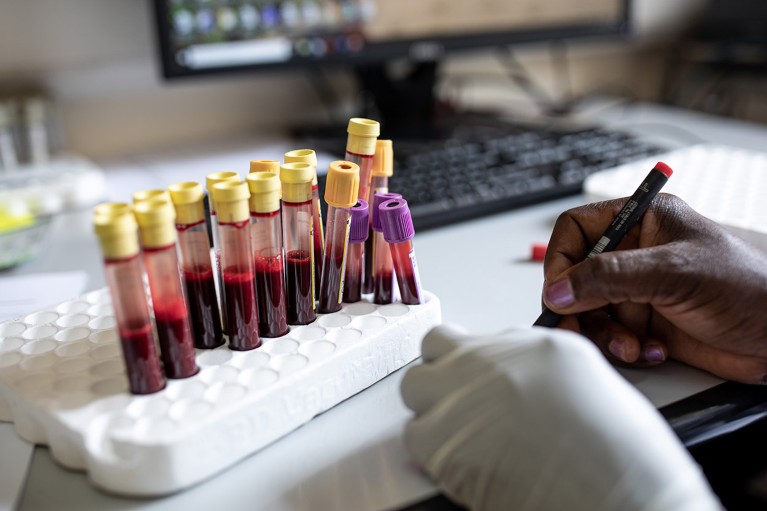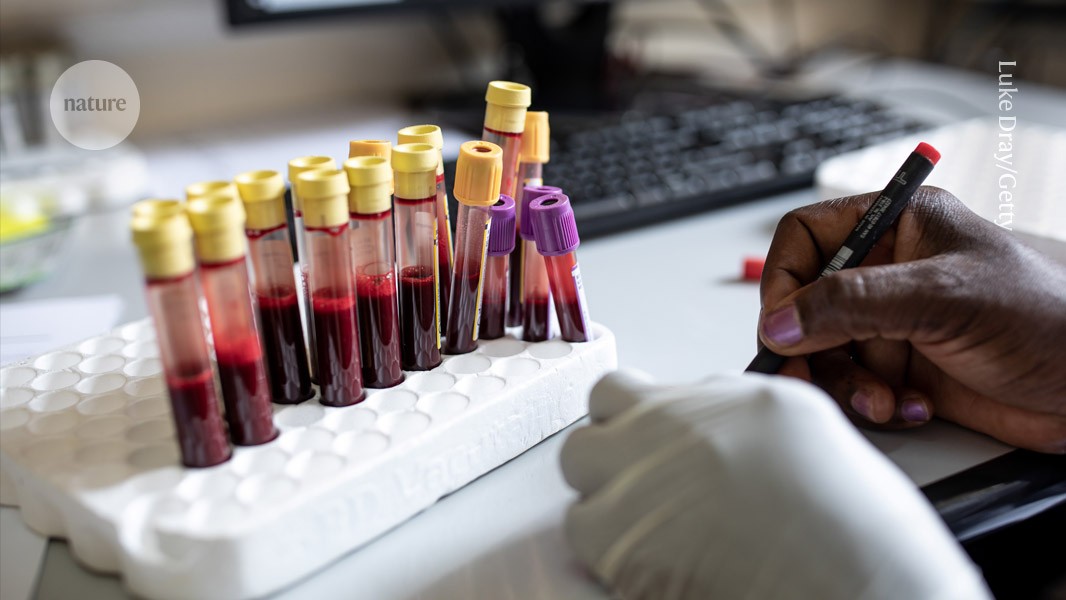
The Journal of Public Health in Africa aims to provide a reputable publishing platform that serves the needs of African researchers.Credit: Luke Dray/Getty
When Nicaise Ndembi took the helm of the Journal of Public Health in Africa (JPHIA), his goal was to amplify African voices in global health research. Six months after he stepped down as editor-in-chief, researchers are calling for bold changes to make certain that the journal can fulfil its promise.
“We want to ensure that what is being done in Africa is well known by the rest of the world,” says Ndembi, a virologist and deputy director-general of the Kigali-based Africa regional office of the non-profit International Vaccine Institute (IVI). Epidemiologist Nebiyu Dereje at the Africa Centers for Disease Control and Prevention (Africa CDC) was named the new chief editor of JPHIA earlier in the year.
First launched in 2010 as an online peer-reviewed journal, JPHIA was created to offer African researchers a more accessible alternative to international journals, which often come with high fees and high rejection rates. But the journal has struggled to gain traction.
In the nearly eight years since it became the official journal of the Africa CDC, JPHIA has published just over 450 articles. Researchers say that’s not enough. “There’s a niche group that knows JPHIA well, but many more of us are clueless,” says Nadia Sam-Agudu, one of the journal’s editorial reviewers and a paediatrics researcher at the University of Minnesota Medical School in Minneapolis, who is originally from Ghana. “We need to do better with advertising the journal so that we can send out work, cite it and then push its impact factor.”
Potential to lead
One of the most pressing issues is visibility — and that starts with the journal’s website. “To be perceived as reputable and worthy, the journal needs to improve its visual appeal to attract attention,” says Seye Abimbola, a health-systems researcher at the University of Sydney in Australia, and the former editor-in-chief of BMJ Global Health. “Visual presentation is crucial, as people often subconsciously judge a journal’s credibility and quality based on its appearance,” he says.
Abimbola, who helped to elevate BMJ Global Health into a leading voice for the global south, says that JPHIA must take a more proactive approach. That includes commissioning articles on timely topics, inviting influential African thinkers to contribute and actively promoting content to shape public-health conversations across the continent.
JPHIA’s low article-processing charge — around US$120 per page — and need-based subsidies make it more affordable than many international journals. But for early-career researchers, even that can be a stretch. In Nigeria, for example, estimates suggest that university lecturers earn between $300 and $1,200 per month. Although article-publication fees should come out of researchers’ grants or their department’s budget, many African governments and universities rarely fund these fees for scientists.
There’s a real need for sustainable local publishing options, says Ndembi, adding that most public-health research done in Africa is published in international journals, which do not adequately reflect or address the region’s needs and challenges. “Their publishing charges are expensive, and they do not serve the target African audience,” he says.
That’s why initiatives such as Open Research Africa — a partnership between the Nairobi-based Science Foundation Africa and UK publisher F1000 that provides a platform for sharing and reuse of African research output — are gaining attention. But JPHIA, with its Africa CDC backing, has the potential to lead.


